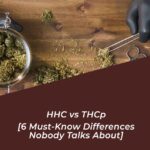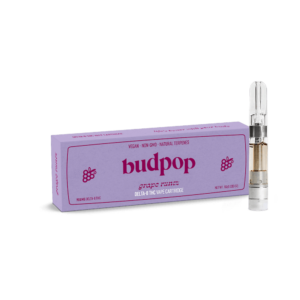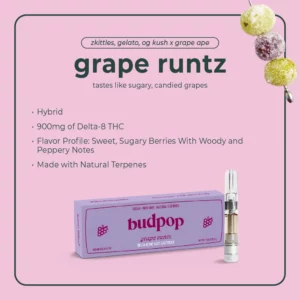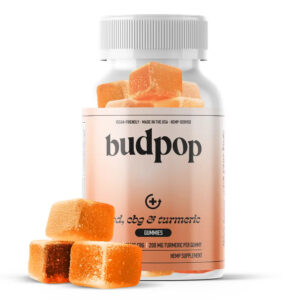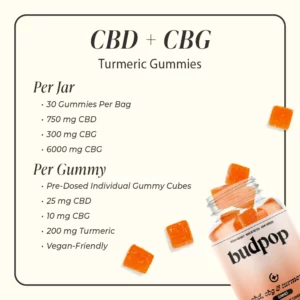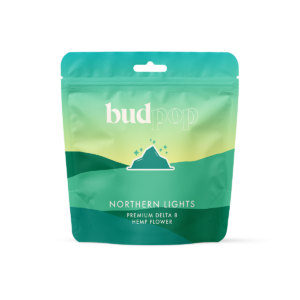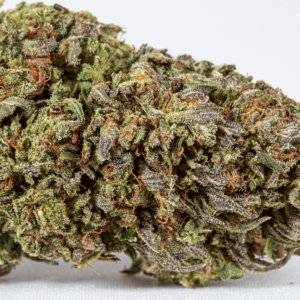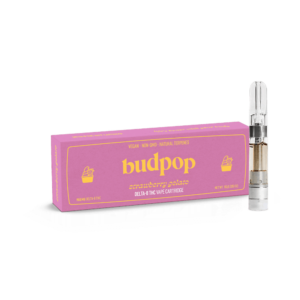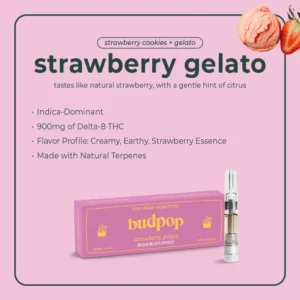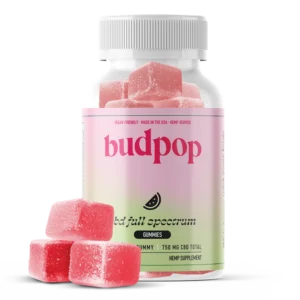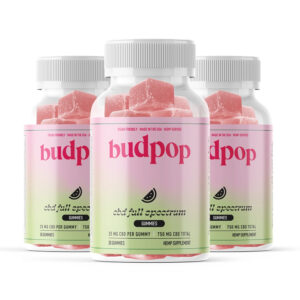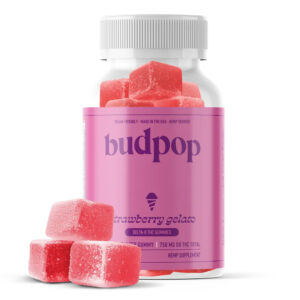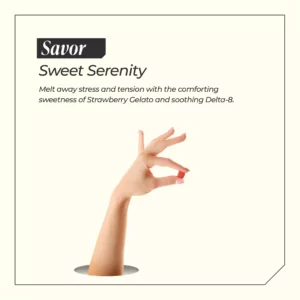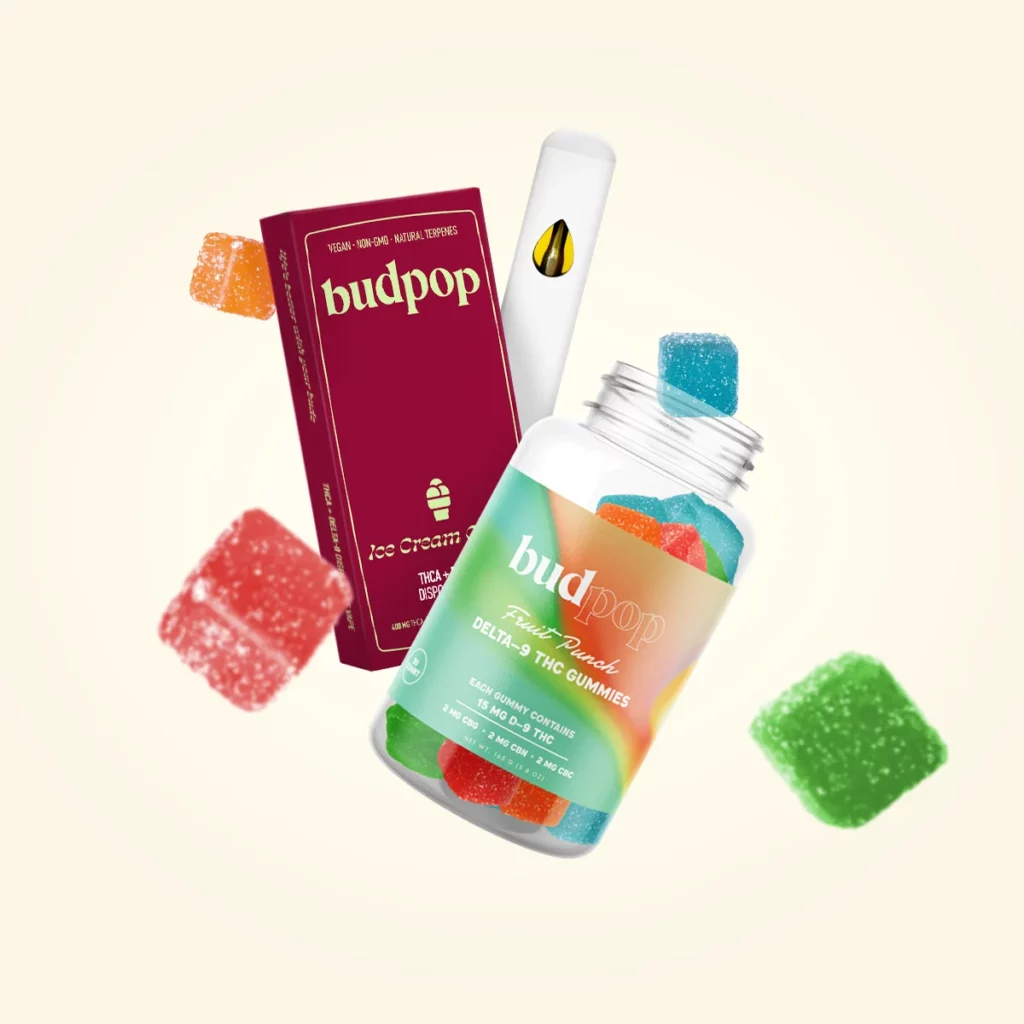THC (Tetrahydrocannabinol), also known as Delta-9, is the primary compound in cannabis responsible for its signature euphoric effects. Its legal status is a widely debated topic, as laws vary between states and the federal government. Many people often ask, is THC legal? The answer depends on whether you’re using it for medical or recreational purposes, the source of the cannabis plant it’s derived from, and where you live. Keep reading as we’ll cover the laws surrounding THC in the United States to give you a clear understanding of its legal status.
Is THC Legal?
The legality of THC in the United States is complicated, to say the least. Federally, THC derived from marijuana plants is classified as a Schedule I controlled substance under the Controlled Substances Act. Under this act, THC is illegal, considered to have no accepted medical use, and has a high potential for abuse. However, many states, like California, have taken steps to legalize THC for both medical marijuana and recreational marijuana use, creating a patchwork of different laws. Fun fact: California allows adults aged 21 and over to grow up to six plants for personal consumption.
Some states have legalized both medical use and recreational cannabis, such as California, Colorado, and Oregon. Others, like Texas, only allow medical cannabis under specific conditions. With popularity at an all-time high, more states will seek to legalize recreational marijuana in the coming years. Despite state-level legalizations, THC remains illegal under federal law, leading to conflicts and challenges for marijuana businesses and consumers.
Adding further confusion to THC’s legal status is the 2018 Farm Bill. The Farm Bill legalized hemp plants and all hemp-derived products as long as the total THC by dry weight concentration does not exceed 0.3%. Therefore, hemp-derived THC products are federally legal and legal in most states.
![Is THC Legal? [Must-Know Legal Updates & State-by-State Breakdown] lady justice next to cannabis bud](https://budpop.com/wp-content/uploads/2025/01/lady-justice-next-to-cannabis-bud.jpg)
Medical vs. Recreational Use of THC
THC can be used for both medicinal and recreational purposes. But the laws and regulations surrounding these uses differ.
List of States Where THC Is Legal for Medical Use
As of this writing, Forty states have legalized medical marijuana. These states have specific state medical marijuana laws and programs to regulate its use. These are the states that allow for the legal, medical use of THC:
- Alabama
- Alaska
- Arizona
- Arkansas
- California
- Colorado
- Connecticut
- Delaware
- District of Columbia (D.C.) – Not a state.
- Florida
- Hawaii
- Illinois
- Louisiana
- Maine
- Maryland
- Massachusetts
- Michigan
- Minnesota
- Mississippi
- Missouri
- Montana
- Nevada
- New Hampshire
- New Jersey
- New Mexico
- New York
- North Dakota
- Ohio
- Oklahoma
- Oregon
- Pennsylvania
- Rhode Island
- South Dakota
- Utah
- Vermont
- Virginia
- Washington
- West Virginia
- Wisconsin
- Wyoming
![Is THC Legal? [Must-Know Legal Updates & State-by-State Breakdown] cannabis leaf in center of american flag](https://budpop.com/wp-content/uploads/2025/01/cannabis-leaf-in-center-of-american-flag.jpeg)
List of States Where THC Is Legal for Recreational Use
States that have legalized recreational cannabis allow adults to use it without a medical card. However, restrictions on home cultivation and plants per household still apply.
As of this writing, 24 states allow for the legal recreational use of THC. They are:
- Alaska
- Arizona
- California
- Colorado
- Connecticut
- Delaware
- District of Columbia (D.C.) – Not a state.
- Illinois
- Maine
- Maryland
- Massachusetts
- Michigan
- Minnesota
- Missouri
- Montana
- Nevada
- New Jersey
- New Mexico
- New York
- Ohio
- Oregon
- Rhode Island
- Vermont
- Virginia
- Washington
Medical Benefits and Regulations
Medical marijuana is used to help ease various conditions, including physical discomfort and poor appetite. States with medical marijuana legislation require patients to get a recommendation from a healthcare provider and register with the state’s program.
Although more research is needed to fully understand the efficacy of medical cannabis, existing studies highlight its potential benefits. This has fueled THC’s rise as a holistic therapy for various conditions. As science continues to explore its therapeutic effects and more states start legalizing it for medicinal purposes, medical marijuana use will only go up.
Recreational Use Regulations
In states where recreational marijuana legalization has occurred, there are rules for marijuana sales, possession, and usage. For example, in Colorado, adults can legally possess up to one ounce of marijuana, but selling it without a license is still illegal.
Cannabis laws are always in flux, and as a result, they can change based on the whim of political opinion. Although hemp-derived THC products are legal federally as long as they do not have more than 0.3% THC, states like Georgia and Indiana have added amendments to their hemp laws to make it harder to obtain these products. Although public opinion is on the side of legal recreational and medical cannabis use, and with the majority of states falling in line, it will only be a matter of time until this subject is reassessed at the federal level.
![Is THC Legal? [Must-Know Legal Updates & State-by-State Breakdown] medical doctor holding medical cannabis in palm](https://budpop.com/wp-content/uploads/2025/01/medical-doctor-holding-medical-cannabis-in-palm.jpg)
What Is THC?
THC (Tetrahydrocannabinol, Delta 9 THC, Delta 9, D9 THC, or D9) is the main euphoric cannabinoid in marijuana plants. It is one of over 100 cannabinoids in the cannabis plant, best known for its psychoactive effects and powerful therapeutic potential.
THC interacts with the body’s endocannabinoid system, an internal network of signaling receptors modulating various bodily processes. When consumed, THC binds to your endocannabinoid receptors in the brain, affecting memory, pleasure, movement, and perception of time.
THC possesses a chemical structure similar to anandamide, a naturally occurring brain chemical that affects mood, memory, and appetite. This similarity allows THC to bind to cannabinoid receptors, primarily CB1 receptors in the brain, influencing neurotransmitter release and producing its euphoric effects. THC’s molecular formula is C21H30O2, and its structure includes a ring of carbon atoms and hydroxyl groups that interact with the body’s lipids.
This cannabinoid has a bi-phasic effect, meaning its impact changes with dosage. In small amounts, such as when you’re microdosing, the effects are milder and more subtle. However, increasing the dose unlocks the full experience and delivers the potent euphoria many rave about.
![Is THC Legal? [Must-Know Legal Updates & State-by-State Breakdown] thc chemical structure against sunset](https://budpop.com/wp-content/uploads/2024/06/thc-chemical-structure-against-sunset.jpg)
How Can Consumers Verify the Legality of THC Products?
To make sure you are complying with cannabis laws when buying legal THC products, follow these four steps:
- Check State Laws. Look up your state’s specific laws on THC. Some states allow only medical use, others permit recreational use, and some prohibit THC altogether. Additionally, check whether THC’s source—marijuana or hemp—is legal in your state.
- Buy from Licensed Dispensaries and Online Retailers. Only purchase from dispensaries licensed by the state to sell legal marijuana products. These businesses follow state medical marijuana laws or recreational regulations, ensuring product safety and legality. When shopping online, ensure the brand offers legal hemp-derived THC products that can be shipped to your state.
- Review Product Labels. Legitimate THC products will have labels detailing THC content, origin, and testing results. Legal hemp-derived THC products must have THC levels at or below 0.3%.
- Consult Official Sources. If the laws are still unclear, visit state websites or contact local health departments for the latest information on THC laws. This will help you verify the legality of the products you want to purchase.
Looking for high-quality and federally legally compliant THC products? Budpop offers a range of premium, lab-tested THC products that adhere to federal regulations. Visit our shop, explore our selection, and experience the best hemp-derived THC products delivered with quality and care.
FAQs – Is THC Legal?
Is THC Federally Legal Now?
Yes, hemp-derived THC is federally legal as long as products containing the cannabinoid do not surpass a total THC concentration of 0.3%. Marijuana-derived THC is not federally legal. It is classified as a Schedule I drug under the Controlled Substances Act, making it illegal under federal law. However, many states have created their own laws, leading to a mix of regulations. This creates a legal gray area where THC is legal to purchase and use in certain states but remains federally prohibited.
Which THC Is Legal?
Hemp-derived THC products containing 0.3% or less total THC by dry weight are federally legal. However, marijuana-derived THC products are only legal in certain states for medical or recreational use. It’s important to check your state’s hemp and marijuana laws to see what is permitted.
When Did THC Become Legal?
Hemp-derived THC became legal in 2018 with the passage of the Farm Bill. Marijuana-derived THC, however, has not been fully legalized in the United States. Federally, it remains illegal, but the movement toward legalization began at the state level in 1996 when California passed Proposition 215, making it the first state to legalize medical marijuana. This marked the start of a gradual shift, with more states following suit.
What Is the Legal THC Limit in the US?
For hemp products, the federal legal limit is 0.3% THC. When it comes to how much THC is legal for marijuana products, the limits vary by state. For instance, Colorado allows adults to possess up to one ounce, while other states have different rules. Federally, marijuana-derived THC products are illegal, regardless of the amount of THC they contain. Always check local laws to understand the limits of where you live.
How Much THC Will Show Up in a Drug Test?
The amount of THC that shows up in a drug test depends on several factors. These include the type of test, how frequently you consume THC, and the sensitivity of the test. THC can be detected in urine samples for up to 30 days in frequent consumers, but for occasional consumers, it may only be detectable for a few days. Blood tests can detect THC for up to a few hours to a couple of days, while hair tests can detect THC use for several months. Even if you use THC legally in your state, it’s important to be aware that drug tests often do not distinguish between legal and illegal THC use, which can have implications for employment or other situations where drug testing is required.
Final Thoughts – Is THC Legal? [Must-Know Legal Updates & State-by-State Breakdown]
Is THC legal? Yes, hemp-derived THC is federally legal, provided the product contains no more than 0.3% total THC. However, marijuana-derived THC remains illegal at the federal level. The answer to whether THC is legal or not depends on your location, the cannabis plant source of the THC product you’re consuming, and, if marijuana-derived, whether you’re using it for medical or recreational purposes. While some states have moved towards marijuana legalization, marijuana-derived THC products remain illegal under federal law.
This discrepancy creates a complex legal environment that requires careful navigation. Always check your state law and stay informed about cannabis laws to ensure compliance. As more states consider legalizing marijuana, staying educated on both state and federal changes is essential for anyone interested in using THC products. Looking for premium, hemp-derived THC products that are federally legal? Shop at Budpop! From THC gummies to THC vapes, we’ve got everything you need to experience those classic sensations. Shop our THC products today!
Editor’s Note: The content on this website is for general informational purposes only. It should not be considered legal advice or a definitive guide to current laws. We make no claims about the accuracy or reliability of the legal information provided, nor is it intended to influence your decision to purchase our products. Since laws vary by state and frequently change, the information here may not always be up to date. We recommend consulting a licensed attorney in your area or the destination where you plan to ship products to confirm their legal status.
![Is THC Legal? [Must-Know Legal Updates & State-by-State Breakdown] is thc legal](https://budpop.com/wp-content/uploads/2025/01/is-thc-legal.jpg)
![Is THC Legal? [Must-Know Legal Updates & State-by-State Breakdown] budpop thca flower](https://budpop.com/wp-content/uploads/2024/06/thca-flower-blog-cta-1024x938.jpg)
![Delta 9 vs CBD Gummies [Which Edible Comes Out on Top?] delta 9 vs cbd gummies](https://budpop.com/wp-content/uploads/2025/08/delta-9-vs-cbd-gummies-1-150x150.jpg)
![Best Delta 9 Gummies for Sleep [4 Gummies That Work Tonight!] best delta 9 gummies for sleep](https://budpop.com/wp-content/uploads/2025/08/best-delta-9-gummies-for-sleep-1-150x150.jpg)


